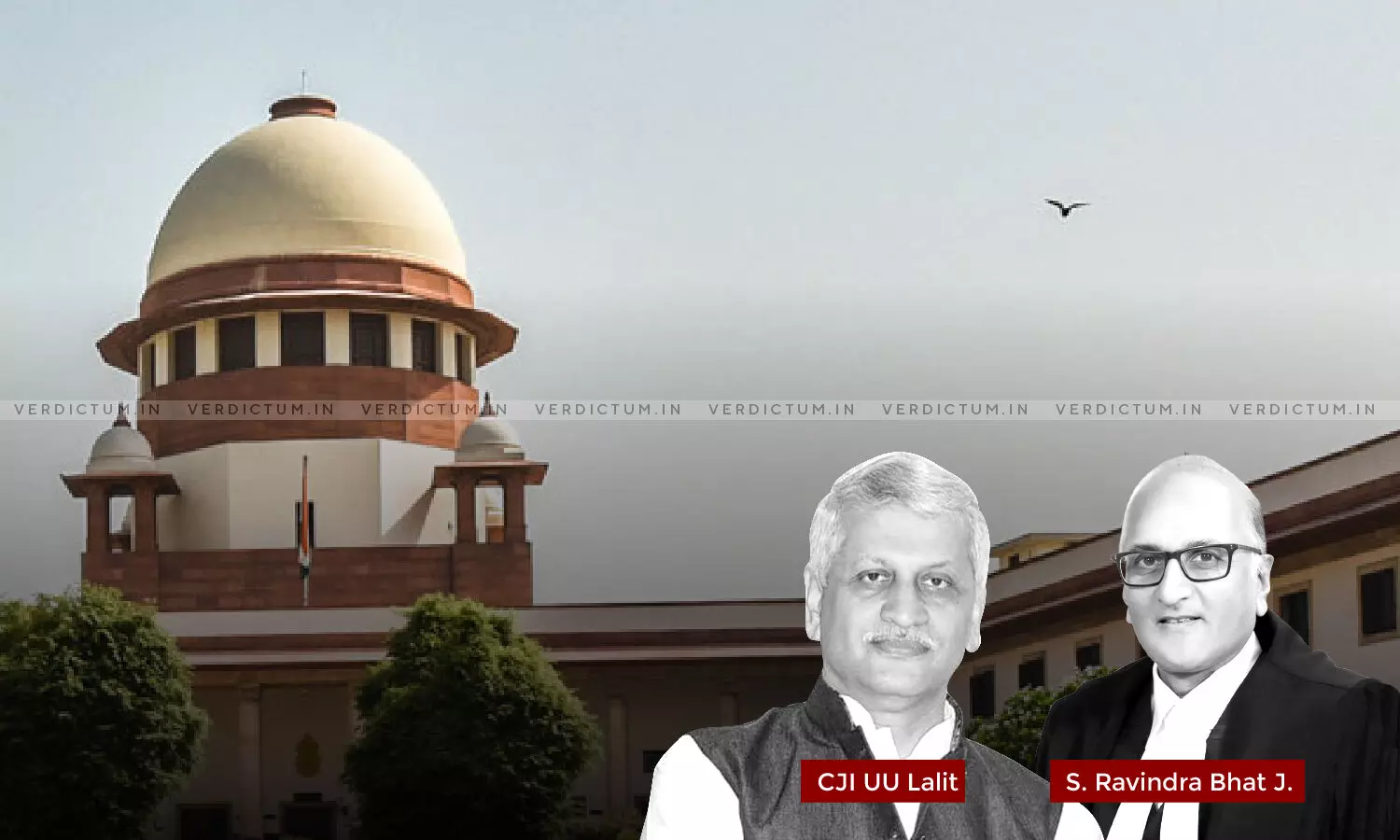
Death Penalty: SC Refers Case To Constitution Bench For Framing Guidelines On Mitigating Circumstances
 |
|The Supreme Court today referred to a five-judge Constitution bench a suo motu plea on framing of guidelines on how and when potential mitigating circumstances be considered by courts during trial in cases that entail the death penalty as the maximum punishment.
A bench headed by Chief Justice Uday Umesh Lalit said it was of the opinion that this matter required a hearing by a larger Bench to have clarity and uniform approach as to when an accused, facing death penalty as maximum sentence, is required to be heard with regard to mitigating circumstances.
Let the matter be placed before the CJI for orders in this regard, Justice S Ravindra Bhat said while pronouncing the verdict.
A death sentence is irreversible and every opportunity should be given to the accused for consideration of mitigating circumstances so that the court concludes that capital punishment is not warranted, the bench had observed while reserving its verdict on August 17.
The Apex Court had taken note of the issue, saying there was an urgent need to ensure that mitigating circumstances for conviction of offences that carry the possibility of a death sentence are considered at the trial stage.
The Cout observed, "In light of the above, there exists a clear conflict of opinions by two sets of three judge bench decisions on the subject. As noticed before, this court in Bachan Singh had taken into consideration the fairness afforded to a convict by a separate hearing, as an important safeguard to uphold imposition of death sentence in the rarest of rare cases, by relying upon the recommendations of the 48th Law Commission Report."
Further, the Bench also held, "It is also a fact that in all cases where imposition of capital punishment is a choice of sentence, aggravating circumstances would always be on record, and would be part of the prosecution's evidence, leading to conviction, whereas the accused can scarcely be expected to place mitigating circumstances on the record, for the reason that the stage for doing so is after conviction. This places the convict at a hopeless disadvantage, tilting the scales heavily against him. This court is of the opinion that it is necessary to have clarity in the matter to ensure a uniform approach on the question of granting real and meaningful opportunity, as opposed to a formal hearing, to the accused/convict, on the issue of sentence."
The case was titled Framing Guidelines Regarding Potential Mitigating Circumstances to be Considered While Imposing Death Sentences.
(Story has been updated after receipt of the Judgment)
Click here to read/download the Judgment
With PTI inputs